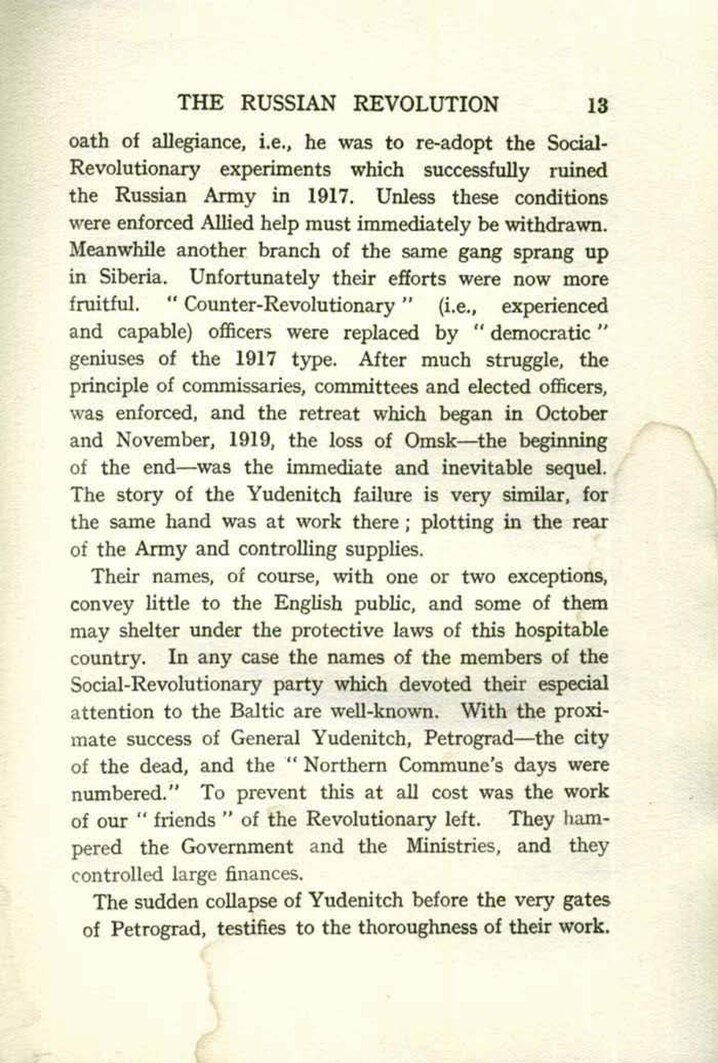oath of allegiance, i.e., he was to re-adopt the Social-Revolutionary experiments which successfully ruined the Russian Army in 1917. Unless these conditions were enforced Allied help must immediately be withdrawn. Meanwhile another branch of the same gang sprang up in Siberia. Unfortunately their efforts were now more fruitful. "Counter-Revolutionary" (i.e., experienced and capable) officers were replaced by "democratic" geniuses of the 1917 type. After much struggle, the principle of commissaries, committees and elected officers, was enforced, and the retreat which began in October and November, 1919, the loss of Omsk—the beginning of the end—was the immediate and inevitable sequel. The story of the Yudenitch failure is very similar, for the same hand was at work there; plotting in the rear of the Army and controlling supplies.
Their names, of course, with one or two exceptions, convey little to the English public, and some of them may shelter under the protective laws of this hospitable country. In any case the names of the members of the Social-Revolutionary party which devoted their especial attention to the Baltic are well-known. With the proximate success of General Yudenitch, Petrograd—the city of the dead, and the "Northern Commune's days were numbered." To prevent this at all cost was the work of our "friends" of the Revolutionary left. They hampered the Government and the Ministries, and they controlled large finances.
The sudden collapse of Yudenitch before the very gates of Petrograd, testifies to the thoroughness of their work.
